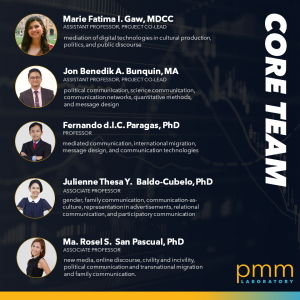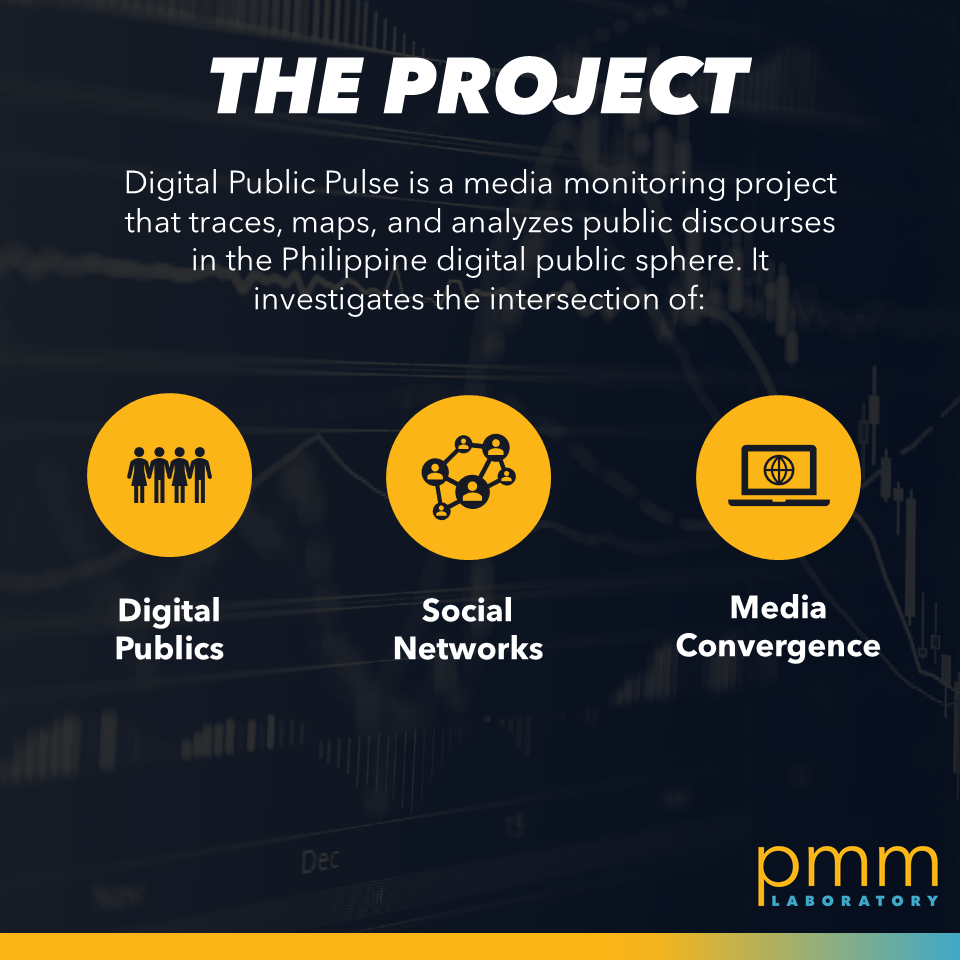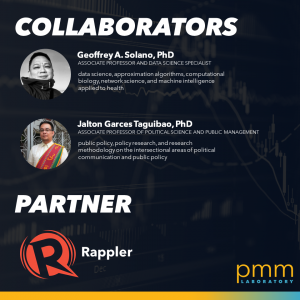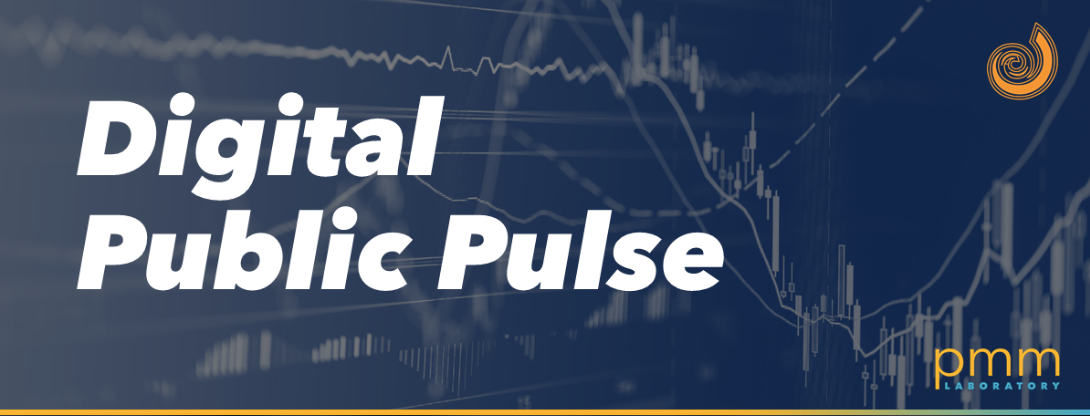
The Digital Public Pulse (DPP) project was launched on Oct. 27 via Zoom by the Philippine Media Monitoring Laboratory (PMM), a consortium of communication researchers, political scientists, and data scientists mostly from UP Diliman (UPD) and based at the UPD College of Mass Communication (CMC) Department of Communication Research (CommRes).
The DPP project is an interdisciplinary study “investigating the networks of actors, issues, and practices related to the 2022 national elections.”
DPP will look at public conversations on Facebook, Twitter, and YouTube (the largest social media platforms used in the country) to identify the topics and issues that are most talked about and which candidates, political leaders and parties, organizations, and individuals discuss online in the run-up to the elections.
In his opening remarks, CommRes chair Randy Jay C. Solis, PhD said “this project tries to engage the electorate on the ground, analyzes the new media milieu, and discusses relevant truths in our society.”
Meanwhile, DPP team leaders, professor Marie Fatima I. Gaw and professor Jon Benedik A. Bunquin of CommRes, explained PMM’s approach to social media research and the value of DPP’s findings in relation to the public’s use of social media, media reporting, civil society, government policy, and the policies of social media platforms.
“The 2022 Philippine general election is unlike any election in the past,” Gaw said. “Next year’s election involves deeply mediated campaigning. The pandemic has restricted movement for voters, candidates, and social groups alike, compelling them to rely heavily on media for political information” she added.

PMM will observe and analyze how different users communicate online and how digital media is being used strategically to influence election-related conversations. To perform this, PMM will apply a three-pronged analysis approach – network analysis, content analysis, and discourse analysis. It will not take part in debunking misinformation circulating in media.
“There is a need to augment and innovate election research and critique,” Gaw said.
DPP will look into the actors or personalities who dominate and get marginalized in social media conversations, the online campaign strategies used such as coordinated messaging and posting, and the role of social media influencers during the 2022 presidential elections.
“Fact-checking will not be part of the study as this aspect is already being conducted by other organizations,” Bunquin said. “The project will focus more on what contents are circulating and the reactions of the public to these contents,” he added.
Together with Gaw and Bunquin in the DPP core team are CommRes professors Julienne Thesa Y. Baldo-Cubelo, PhD, Fernando dlC Paragas, PhD, and Ma. Rosel S. San Pascual, PhD.

Collaborating with PMM are professor Jalton G. Taguibao, PhD from the UPD College of Social Sciences and Philosophy Department of Political Science and professor Geoffrey A. Solano, PhD of the UP Manila College of Arts and Sciences Department of Physical Sciences and Mathematics. PMM is partnering with Rappler for DPP’s Facebook component.
In December, PMM will publicize its preliminary findings on pre-candidacy and early campaign periods. The next report in March 2022 will cover the main campaign and pre-election periods, while the final report in July 2022 will present the evolution of election-related online conversations, covering a period of 10 months.
Gaw said the team is considering to come out with a version of the reports in the vernacular, in addition to the full technical reports in English. “This will help reach more people and help them understand the reports better.”
Regular infographics and snippets of research findings will be posted on Facebook (https://www.facebook.com/pmm.upcommres/) and Instagram (@pmm.upcommres).
To receive the reports, interested parties must sign up at https://bit.ly/dpp_researchreport. Those who wish to collaborate with PMM can send an email to Gaw at migaw@up.edu.ph. — with a report from PMM

